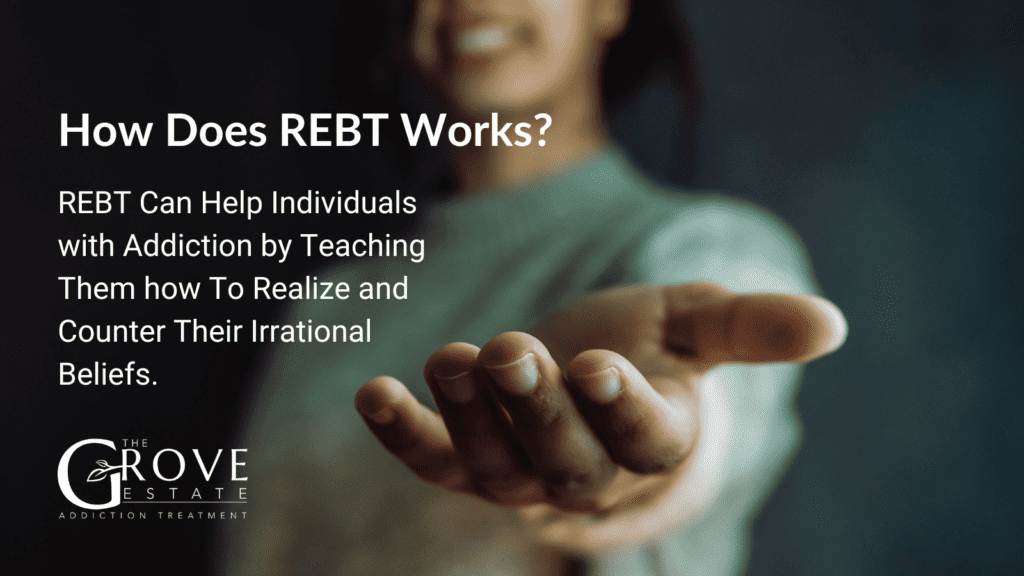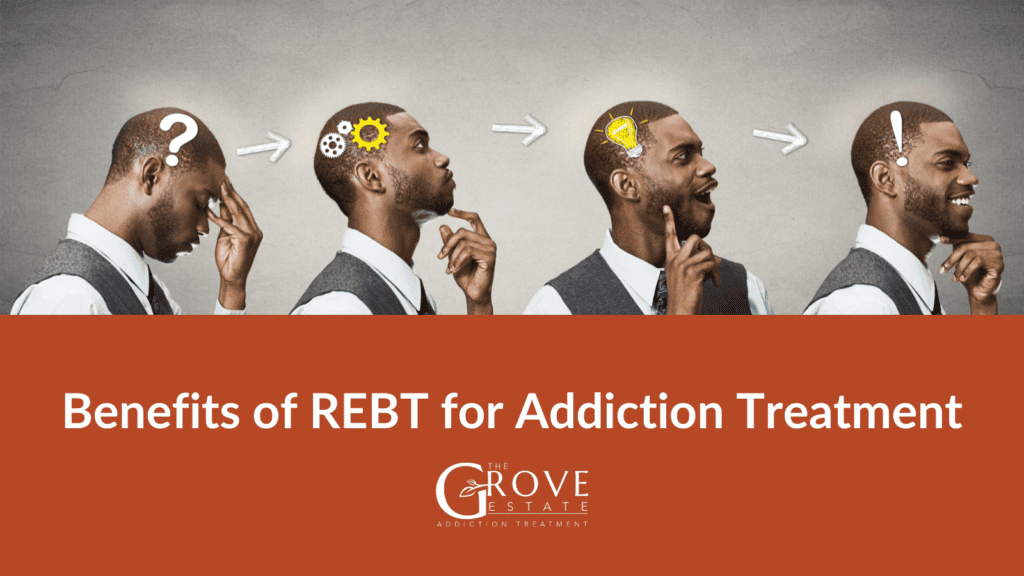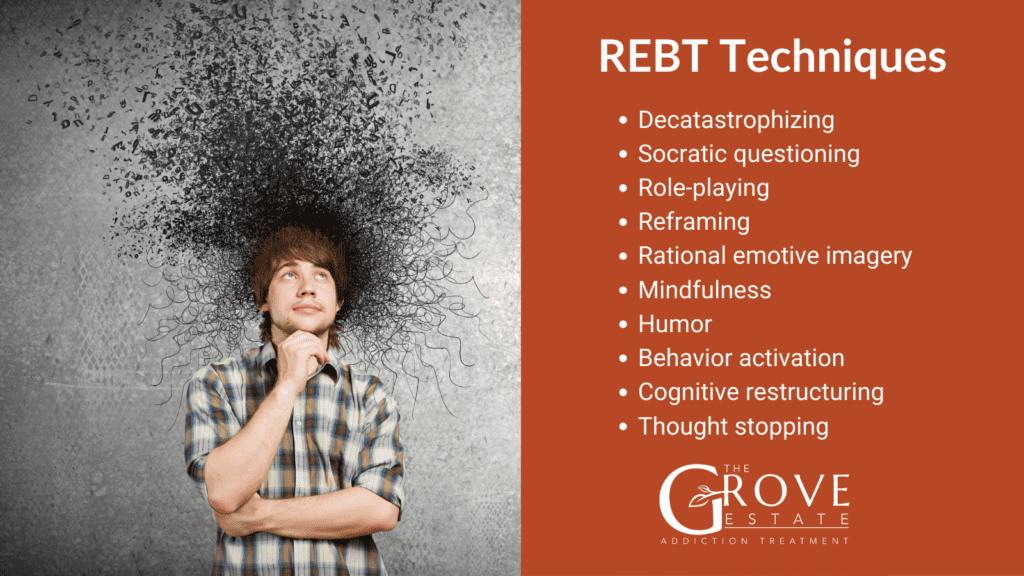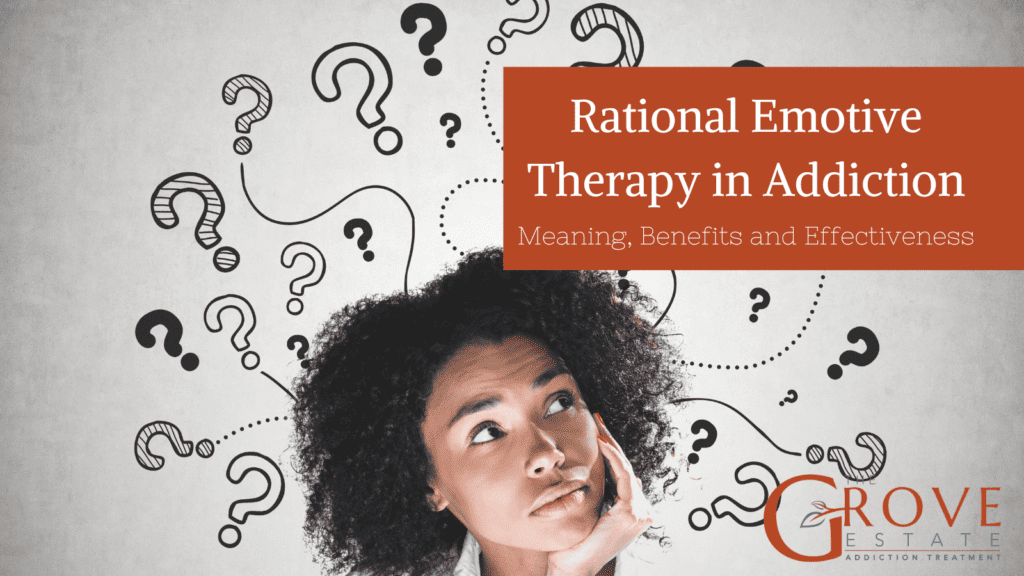Rational Emotive Therapy (RET) plays a pivotal role in the realm of addiction treatment, offering a unique approach to tackling substance misuse and dependency.
At its core, Rational Emotive Therapy focuses on examining and reshaping irrational beliefs and thought patterns that contribute to addiction. By addressing the underlying cognitive factors, it empowers individuals to regain control over their addictive behaviors.
The benefits of RET in addiction treatment are multifaceted. It equips individuals with valuable coping skills, enhances emotional resilience, and fosters healthier decision-making processes. RET also promotes self-acceptance and empowers individuals to break free from the cycle of addiction.
One of the most compelling aspects of Rational Emotive Therapy is its proven effectiveness in addiction recovery. With a strong foundation in evidence-based practices, RET has consistently demonstrated positive outcomes in helping individuals overcome addiction and maintain long-term sobriety.
What Is Rational Emotive Behavior Therapy?
Rational Emotive Behavior Therapy (REBT) is a form of cognitive therapy designed to challenge irrational thoughts and beliefs. It takes an action-oriented approach, assisting individuals in managing emotions by addressing irrational beliefs. REBT helps identify and confront self-defeating thoughts and feelings through a binary model of distress, where healthy negative emotions stem from rational behaviors.
Developed by Dr. Albert Ellis in 1955, REBT is an active-directive and empirically-based psychotherapy that encourages the confrontation of negative automatic thoughts through reason.
The therapy reframes irrational thought patterns and is effective in addressing various issues, emphasizing the importance of challenging unhelpful thoughts to avoid negative outcomes. In essence, REBT is a philosophically and empirically grounded approach aiming to address and change unfavorable beliefs.

How Does Rational Emotive Behavior Therapy for Addiction Treatment Work?
Rational Emotive Behavior Therapy (REBT) has proven to be highly effective in treating substance use disorders and mental health conditions by directly addressing dysfunctional thoughts and behaviors. The therapy is based on the belief that most people think irrationally about themselves and the world around them, which can fuel the cycle of addiction and contribute to other mental health disorders like depression.
REBT can help individuals with addiction by teaching them how to realize and counter their irrational beliefs, embrace more realistic expectations and goals, and decrease their destructive behaviors.
The American Addiction Centers (AAC) recognizes REBT as one of the earliest cognitive-behavioral modalities for addiction treatment, showcasing its significance in the field. Utilized in conjunction with cognitive-behavioral therapy, REBT is instrumental in addiction treatment, focusing on assessing current emotional distress and unhealthy behaviors.
In a 2016 review article by MJ Turner published in the same journal, REBT is presented as the original cognitive behavioral therapy and a valuable approach for addressing mental health concerns.
What Disorders Does Rational Emotive Therapy Treat?
Rational Emotive Behavior Therapy (REBT) can treat a variety of disorders, including:
Anxiety disorders:
- Generalized anxiety disorder
- Panic disorder
- Social anxiety disorder
- Phobias
Mood disorders:
- Depression
- Bipolar disorder
Personality disorders:
- Borderline personality disorder
- Obsessive-compulsive personality disorder
Substance use disorders:
- Alcohol abuse and dependence
- Drug abuse and dependence
Eating disorders:
- Anorexia nervosa
- Bulimia nervosa
- Binge eating disorder
Other conditions:
- Chronic pain
- Post-traumatic stress disorder (PTSD)
- Low self-esteem
- Anger management problems
- Procrastination
It’s important to note that while REBT has shown promise in treating these conditions, it’s not a one-size-fits-all solution. Some individuals may benefit more from other forms of therapy, such as cognitive-behavioral therapy (CBT) or medication. Ultimately, the best course of treatment should be determined by a qualified mental health professional.

Benefits of REBT for Addiction Treatment
Benefits of REBT for Addiction Treatment include:
- Reduced Emotional Distress: REBT aids in moderating disturbing feelings associated with addiction.
- Improved Coping Skills: Individuals undergoing REBT develop appropriate ways to respond to challenging situations, enhancing their coping skills.
- Reduced Substance Use: The action-oriented approach of REBT contributes to a reduction in substance use during addiction treatment.
- Relapse Prevention: REBT plays a crucial role in avoiding responses to irrational thoughts or beliefs, acting as a preventive measure against relapse.
- Increased Self-Esteem: The therapy helps in understanding that drugs are not a solution to life’s difficulties, leading to increased self-esteem.
- Improved Quality of Life: REBT is successful in treating drug addiction, contributing to an overall improvement in the quality of life for individuals undergoing addiction treatment.
By integrating REBT into addiction therapy, individuals can effectively manage irrational beliefs and feelings, acquiring essential skills for maintaining sobriety. This approach, recognized as one of the first cognitive-behavioral modalities in addiction treatment, demonstrates its efficacy in improving various aspects of the recovery process.
How Effective is REBT?
Rational Emotive Behavior Therapy (REBT) is effective in treating a variety of disorders, including depression, post-traumatic depression, and addiction to both alcohol and drugs. REBT intervention programs have been found to protect students from developing more severe mental health symptoms, such as major depressive disorders.
Controlled studies have demonstrated the effectiveness of REBT in reducing psychological symptoms, and it is more effective than some psychological interventions and equally effective as psychoeducation/supportive interventions.
REBT is generally accepted as an effective type of therapy, with research indicating its effectiveness in reducing attachment anxiety, psychological inflexibility, obsessive-compulsive disorder symptoms, and emotional issues. REBT has been found to work effectively with individuals suffering from addiction and has been shown to improve medical student’s ability to overcome depression and irrational beliefs.
REBT has also been identified as an effective intervention for regulating competitive anxiety, perfectionism, and irrational beliefs. Research suggests that REBT is effective at reducing irrational beliefs and changing behavior, with similar positive results observed in sports. Overall, REBT is a well-established and effective form of therapy.
How Long Does REBT Take?
Rational Emotive Behavior Therapy (REBT) sessions can be brief, lasting as little as five sessions for specific issues, or extended based on the client’s commitment. The therapy sessions typically range from 10 to 120 minutes and may continue for several weeks.
REBT varies in duration depending on individual factors and client motivation
REBT is designed to be a brief intervention, with expected results between 1-18 months of treatment.
However, the duration varies, emphasizing the individualized nature of the therapy based on the patient’s needs, progress, and ability to learn.
The effectiveness of REBT in addressing competitive anxiety, perfectionism, and irrational beliefs has been highlighted in various studies, emphasizing its value as a psychotherapeutic intervention.
These findings underscore that while REBT is not a one-size-fits-all approach, it is a valuable long-term process that requires hard work, tailored to individual needs, with success being a possible outcome.
What Are Some Potential Drawbacks of Using REBT for Addiction Treatment?
Using Rational Emotive Behavior Therapy (REBT) for addiction treatment has certain drawbacks, as outlined below:
- REBT may be less effective with someone who is not sober, as a clear mind contributes to the therapy’s effectiveness.
- REBT is not effective in treating schizophrenia, personality disorder, and similar severe psychological disorders.
- REBT requires patients to be willing to work on their issues, including doing homework.
- Some REBT techniques are degrading and forceful, and may not be enjoyable for patients.
- People with low tolerance and acceptability may struggle with REBT, and it may worsen the relationship between the therapist and the patient.
What to Expect During a REBT Session?
During a Rational Emotive Behavior Therapy (REBT) session, you can expect to work with a therapist to identify and challenge irrational beliefs and negative thought patterns that may be contributing to emotional and psychological distress. The therapist will help you develop strategies to replace these patterns with more rational thought patterns.
REBT is a short-term process that typically takes 12-20 sessions, with each session lasting 10 to 120 minutes. Typically a session can last around 50 minutes. The therapy is a psychoeducational approach, and practitioners are transparent about the theory and interventions.
The goal is for clients to learn to successfully identify and address irrational thinking, feeling, and behaving on their own. REBT therapists strive not just to help clients feel better but also to become better. The therapy can be particularly helpful for people living with a variety of issues, including depression, anxiety, addictive behaviors, and phobias.
Coping techniques such as relaxation, hypnosis, and meditation may also be used to help manage the emotional consequences of irrational thoughts. Your therapist will likely give you some work to do on your own between sessions to apply the skills you learn in a session to your daily life.

What Are Some REBT Techniques?
Mental health professionals use various REBT techniques and exercises to help clients identify and challenge irrational beliefs, fostering improved emotional well-being.
Here is a list of 10 commonly used REBT Techniques:
- Decatastrophizing:
- Involves challenging catastrophic thoughts and replacing them with more realistic ones.
- Aids in recognizing irrational beliefs and promoting more realistic thinking.
- Socratic questioning:
- Involves questioning clients’ thoughts and beliefs to enhance awareness and identify irrational beliefs.
- Facilitates the replacement of irrational beliefs with more realistic ones through thoughtful questioning.
- Role-playing:
- Allows clients to practice new behaviors or responses to challenging situations.
- Effective for individuals dealing with social anxiety, helping them practice assertiveness and build confidence.
- Reframing:
- Shifts perspective on a situation to gain insight and see the bigger picture.
- Involves replacing existing thoughts or beliefs with more realistic interpretations.
- Rational emotive imagery:
- Helps replace irrational thoughts with more productive ones.
- Clients imagine themselves in anxiety-inducing situations and replace negative thoughts with positive and realistic ones.
- Mindfulness:
- Aims to increase awareness of thoughts and feelings in the present moment without judgment.
- Encourages observing thoughts without attachment, promoting awareness of negative thought patterns.
- Humor:
- Serves as a powerful tool to lighten moods and change perspectives.
- Enables individuals to step back from intense emotions, fostering openness to different viewpoints.
- Behavior activation:
- Encourages engagement in enjoyable and meaningful activities.
- Reinforces positive behaviors, helping individuals break out of unhealthy patterns.
- Cognitive restructuring:
- Identifies and challenges negative thought patterns, replacing them with positive and rational ones.
- For instance, challenging beliefs of being unlovable by finding contrary evidence.
- Thought stopping:
- Helps recognize and stop negative thoughts before they escalate.
- Involves relaxation techniques or physical activities to redirect attention and replace negative thoughts with positive ones.
What Is The ABCDE Model of REBT?
The ABCDE model is a fundamental framework in Rational Emotive Behavior Therapy (REBT). It’s a structured approach to understanding and addressing how our thoughts, feelings, and behaviors are interconnected.
Here’s a breakdown of each step:
A: Activating Event
- This is the situation or experience that triggers a particular emotional response.
- It can be positive, negative, or neutral, and it can be something that happens externally or internally (e.g., a thought or a memory).
B: Beliefs
These are the thoughts and interpretations we have about the activating event. REBT focuses on identifying irrational beliefs, which are often characterized by:
- Demandingness (e.g., “I must always succeed.”)
- Awfulizing (e.g., “It’s terrible that I failed.”)
- Low frustration tolerance (e.g., “I can’t stand feeling this way.”)
- Global evaluation of self or others (e.g., “I’m a failure.”)
C: Consequences
- These are the emotional and behavioral reactions that result from our beliefs about the activating event.
- Irrational beliefs often lead to unhealthy negative emotions (e.g., anxiety, depression, anger) and destructive behaviors.
D: Disputation
- This is the process of challenging and questioning irrational beliefs.
- It involves techniques such as:
- Examining the evidence for and against the belief
- Considering alternative, more rational explanations
- Evaluating the helpfulness of the belief
E: Effective New Belief
- This is the goal of REBT: to replace irrational beliefs with more rational, helpful, and constructive beliefs.
- This leads to healthier emotional and behavioral responses to activating events.
The ABCDE model of REBT is a tool used to help individuals understand the connection between their thoughts, feelings, and behaviors. The ABCDE model serves as a guide for self-reflection, therapeutic interventions, and developing coping strategies, with the ultimate goal of empowering individuals to take control of their thoughts and emotions, leading to a more fulfilling and productive life.
By following this model, individuals can improve their ability to cope with stress and adversity, build resilience and emotional well-being, and live a more satisfying life.
How Does REBT Complement Other Treatment Approaches in Addiction Recovery?
REBT complements other treatment approaches in addiction recovery by effectively addressing the symptoms of addiction, such as irrational thinking and emotional disturbances.
It helps patients recognize irrational thinking and find healthier ways to cope, allowing them to work through issues without substances. REBT is widely accepted in rehab programs due to its high success rate in helping individuals struggling with addiction face underlying causes of addiction and overcome them.
REBT can be used as a complementary intervention and can be used with other addiction treatment services such as medication management, 12-step programs, and other evidence-based therapies. REBT complements traditional treatments by helping individuals recognize problem-solving skills, address negative thought patterns, and learn better ways to cope.

How Can The Grove Help?
To explore Rational Emotive Therapy (RET) further and discover if it aligns with your addiction treatment needs, consider reaching out to The Grove. While the availability of RET may vary, The Grove is dedicated to offering personalized, evidence-based treatment options tailored to your unique recovery journey. Our compassionate team believes in your potential for lasting recovery, and we’re here to provide the support and guidance you need to achieve it. Don’t hesitate to connect with The Grove today to explore how we can assist you on the path to a healthier, addiction-free life.

Share This Post



